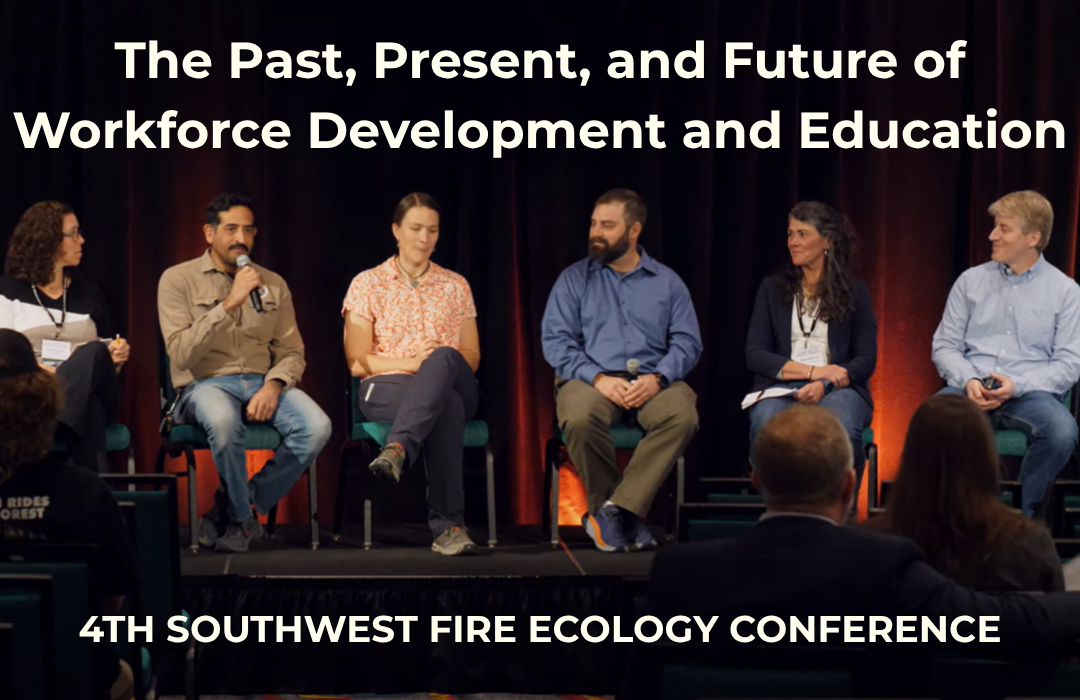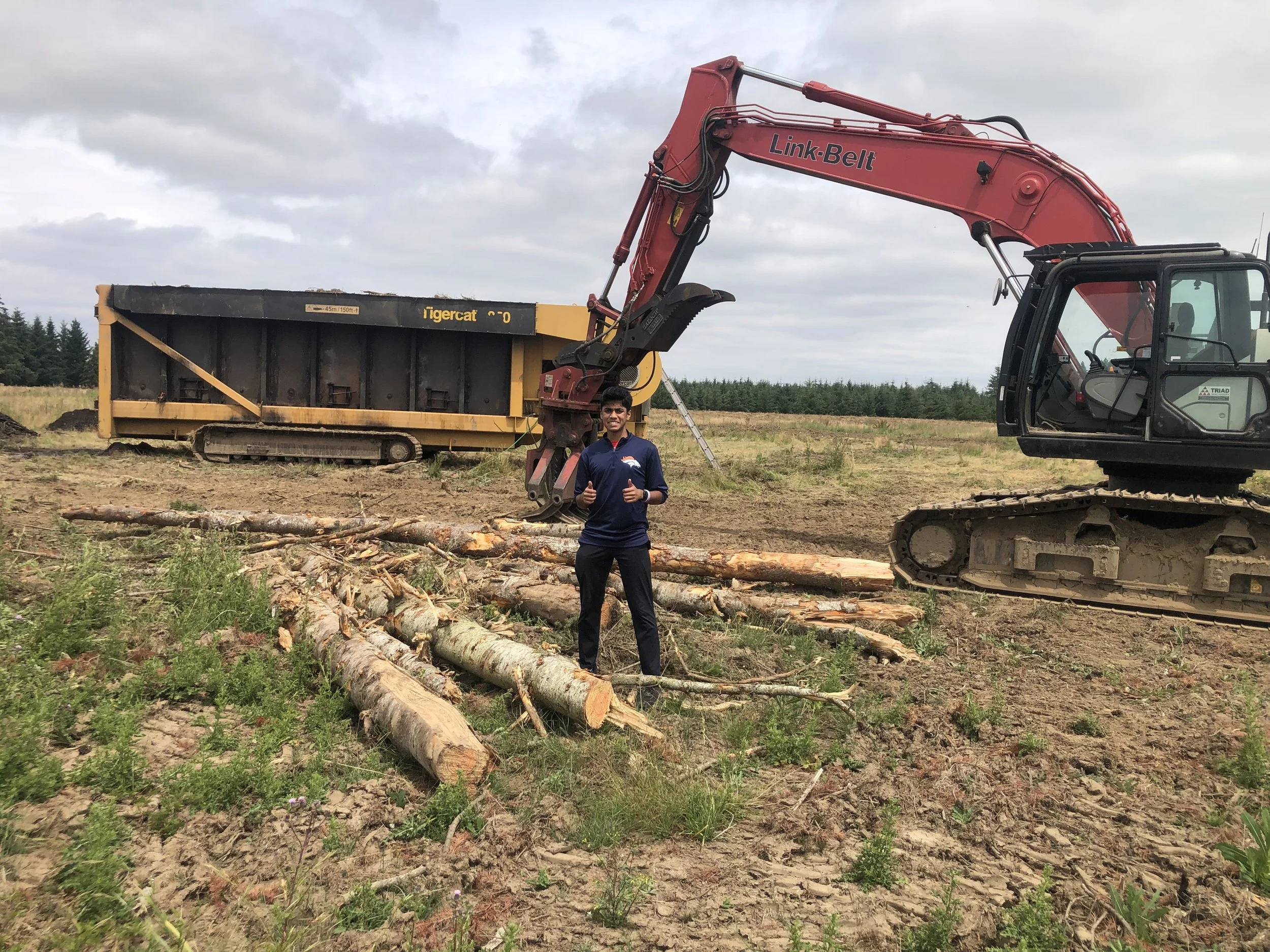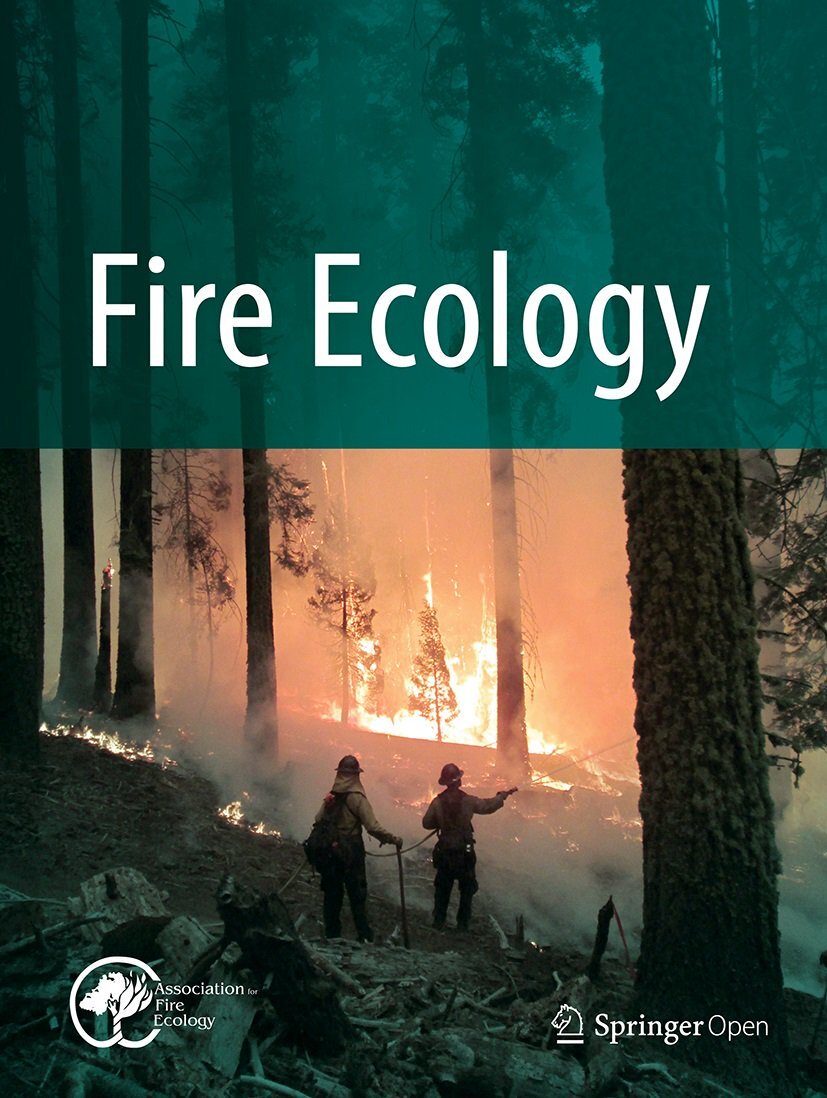Promoting Fire Ecology Research, Education, and Management
The Association for Fire Ecology is an international organization dedicated to improving the knowledge and use of fire in land management. We are scientists, educators, students, managers, practitioners, policymakers, and interested citizens helping to shape the emerging profession and growing field of fire ecology.
AFE news
Join us for #FireCon2025 this fall!
The 11th International Fire Ecology and Management Congress will be held in New Orleans, Louisiana from December 2-6, 2025 with workshops, field trips, and 3 full days of presentations, discussion groups, and networking opportunities.
A recent issue of Philosophical Transactions of the Royal Society B delves into novel fire regimes under human influence and climate change.
A recording of The Past, Present, and Future of Workforce Development and Education panel from the 4th Southwest Fire Ecology Conference has been uploaded.
Applications are now being accepted for the 2025 professional and academic wildland fire certification program.
The 2026 Joint Fire Science Program Funding Announcements are now open and close September 18th, 2025.
AFE's Mentoring Futures Program cultivates the future of wildland fire and resource conservation by investing in future leaders. The application due date for the 5th year of this program has been extended to June 25th.
Proposals will be accepted for special sessions, workshops and trainings, and fire circle discussion groups until May 15th, 2025. Submit yours today and we’ll see you at the 11th International Fire Ecology and Management Congress 2025!
Fire CAFÉ webinars are 1 hour, online discussions hosted by the Association for Fire Ecology. We are accepting proposals now!
We are dedicated to supporting the wildland fire community and making it clear that the global fire crisis will not be solved by lack of funding, resources, or people. Click to read AFE’s statement on recent US federal actions.
fire ecology Journal
Upcoming EVENTs
Save the date for the 11th International Fire Ecology and Management Congress in New Orleans, Louisiana!
SAFE Chapter News
Read AFE’s interview with Sohan Govindaraju, a high school student researcher who developed a model to optimize camera placement for early detection of wildfires.
AFE is pleased to award two students with the Wayne Harrison Memorial Scholarship in 2025.
In Spring 2025, the Texas Tech University SAFE chapter successfully conducted a hands-on one-day chainsaw training session with a chainsaw and two pairs of chaps that were purchased with funds provided by the national SAFE organization.
LATEST JOB POSTINGS
The LEAF Lab at Texas Tech University in Lubbock, Texas seeks an MS Research Assistant in Grassland Fire Behavior.
The Great Basin Institute, in cooperation with the USFS, is recruiting Forestry Technicians to perform timber sale-preparation, vegetation management and restoration projects in the Sierra Nevada region. These projects all serve the Basin & Range Forestry program’s greater mission of helping the USFS in their critical goal of improving forest resilience in the face of worsening climate conditions and increased wildfire threats.
Pheasants Forever is seeking a Prescribed Fire Specialist to help increase prescribed fire capacity throughout South Dakota. The specialist will work directly with agricultural producers to develop conservation plans to accelerate the implementation of conservation practices including and supporting prescribed fire through stewardship and management activities in South Dakota.
Pheasants Forever (PF) in North Dakota is seeking qualified candidates for a Prescribed Burn Specialist position to promote, coordinate, and support the safe and effective use of prescribed fire on private and public lands across North Dakota.
afe podcast: Fire Ecology Chats
Alan Taylor and Eric Knapp discuss how 360-degree photography can help people immersively explore areas previous to fire exclusion.
Jenna Archer discusses tribal sovereignty and how federal environmental laws contribute to fire suppression and exclusion in the United States.
Flavio Taccaliti and Emanuele Lingua discuss forest regeneration after wildfire surrounding downed logs.























An article recently published in Fire Ecology examines using herbivory as a supplement to prescribed fire in areas with limitations.